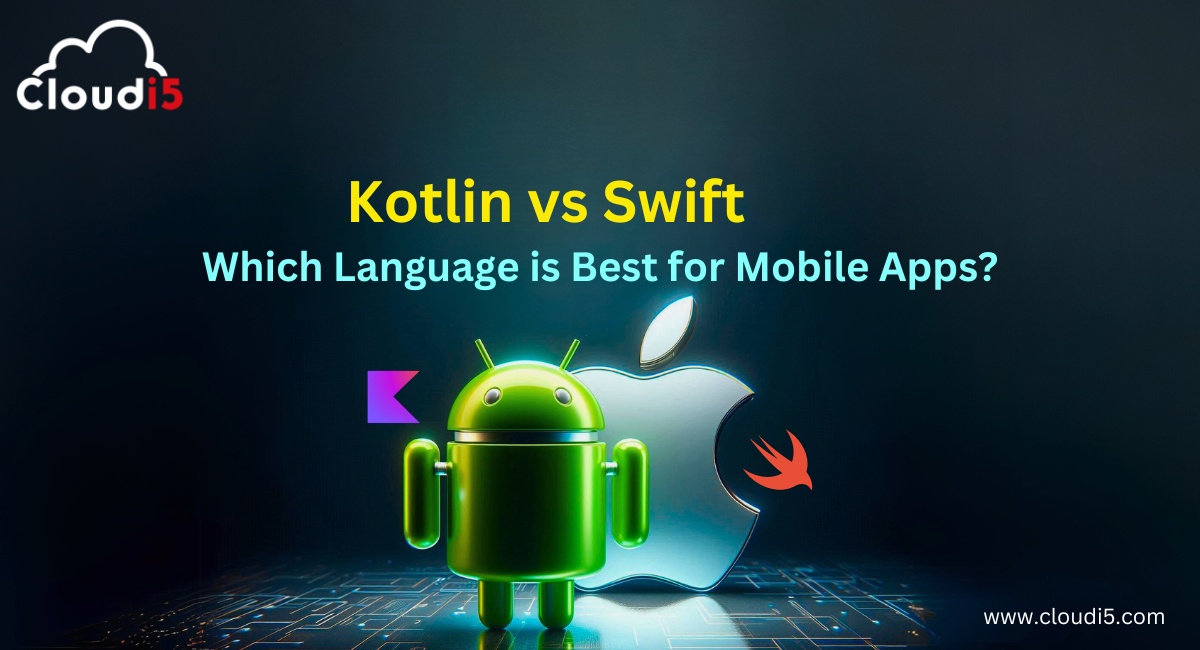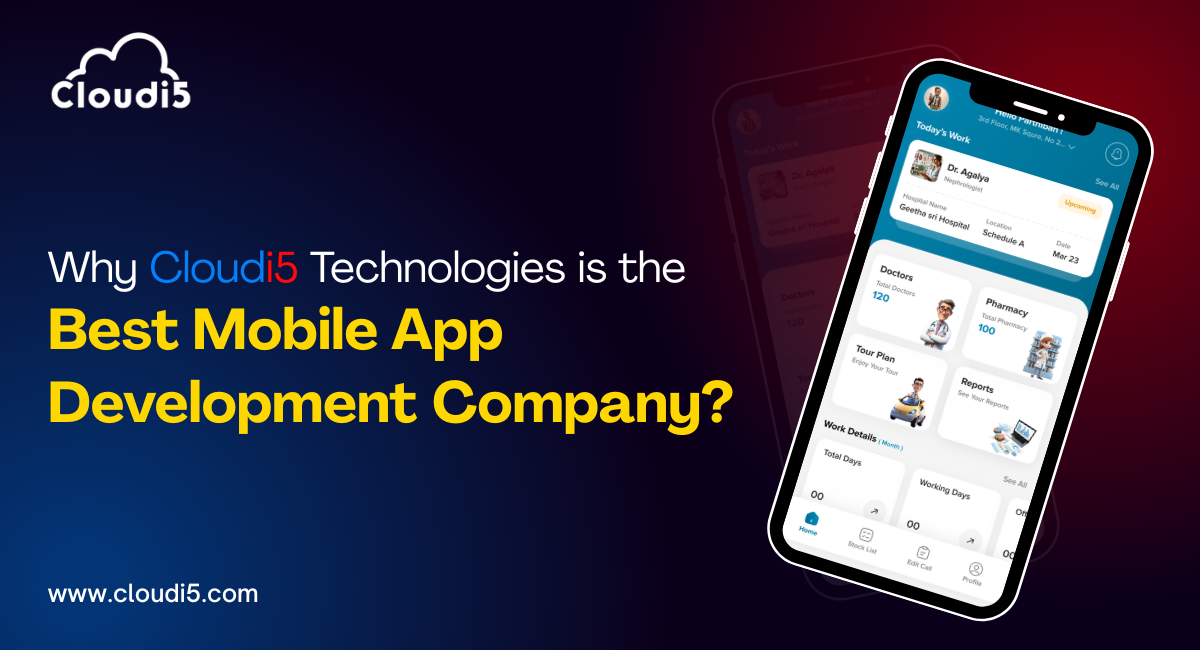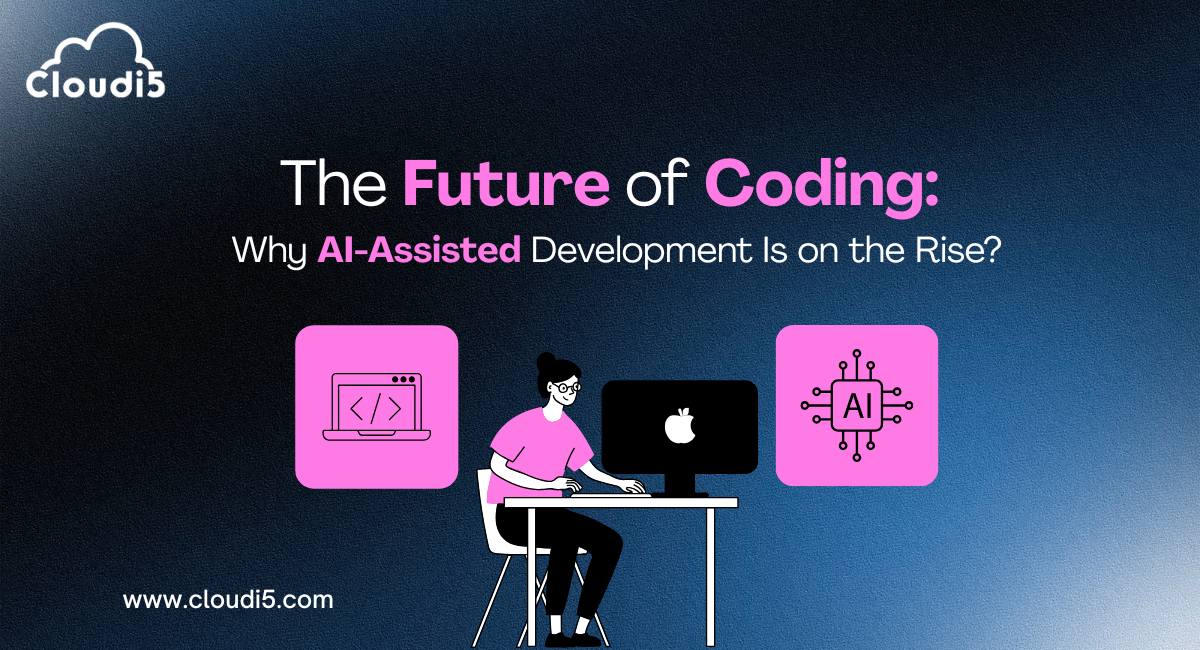
Kotlin Vs Swift Which Language Is Best For Mobile Apps?
Introduction
Overview of Mobile Development
Mobile development is all about creating apps for smartphones and tablets, which have become essential in our daily lives. With millions of apps available, standing out in the crowded app market is a challenge. Two popular programming languages for building mobile apps are Kotlin and Swift—Kotlin is used for Android apps, while Swift is used for iOS apps.
Importance of Choosing the Right Language
Choosing the right programming language is crucial for your app's success. The language you select can affect how well your app performs, how quickly it can be developed, and how easy it is to maintain. In the Kotlin vs Swift discussion, understanding the benefits and drawbacks of each language can help you make a smart choice. Whether you're building for Android or iOS, the right language can make a big difference in your app’s performance and user satisfaction. By comparing Kotlin and Swift, you’ll find out which one is better suited for your project.
What is Kotlin?
Kotlin is a modern programming language designed to make Android app development easier and more enjoyable. Created by JetBrains, Kotlin is fully interoperable with Java, meaning you can use it alongside existing Java code without any issues. This interoperability makes it a popular choice among developers looking to enhance their Android apps.
Key Features of Kotlin
1. Concise Syntax: Kotlin has a clean and straightforward syntax, allowing developers to write less code for the same functionality compared to Java. This can lead to fewer bugs and easier maintenance.
2. Null Safety: One of Kotlin's standout features is its null safety, which helps prevent crashes caused by null references. This means your app is less likely to encounter unexpected errors during runtime.
3. Modern Language Features: Kotlin includes modern programming concepts such as extension functions, coroutines for asynchronous programming, and lambda expressions, making it easier to write efficient and readable code.
4. Strong Community Support: Since Google announced Kotlin as an official language for Android development in 2017, it has gained a vibrant community and abundant resources, libraries, and frameworks to assist developers.
In the Kotlin vs Swift discussion, Kotlin stands out for its simplicity and powerful features, making it a top choice for Android app development. If you're considering entering the world of mobile development, Kotlin is definitely worth your attention!
What is Swift?
Swift is a powerful and intuitive programming language created by Apple for developing iOS, macOS, watchOS, and tvOS applications. Launched in 2014, Swift was designed to be easy to learn and use, making it a favorite among developers looking to create apps for Apple devices.
Key Features of Swift
1. Clear and Concise Syntax: Swift features a clean and expressive syntax that allows developers to write code quickly and efficiently. This simplicity helps reduce errors and enhances readability.
2. Safety and Performance: Swift emphasizes safety, with built-in features that help prevent common programming mistakes, such as null pointer exceptions. Additionally, it’s designed for high performance, making apps run smoothly and efficiently.
3. Modern Language Features: Swift includes advanced programming concepts like optionals, closures, and generics, which enable developers to write more flexible and reusable code. These features allow for powerful and dynamic app functionalities.
4. Strong Community and Ecosystem: Since its release, Swift has built a robust community of developers and a wealth of resources, libraries, and frameworks, making it easier for newcomers to get started and for experienced developers to enhance their skills.
In the Kotlin vs Swift debate, Swift shines as the go-to language for iOS development, combining ease of use with powerful capabilities. If you're aiming to develop apps for Apple platforms, Swift is a language you won’t want to overlook!
Kotlin vs Swift: A Comparative Overview
When considering Kotlin vs Swift, it’s important to compare their key features:
Syntax and Readability
- Kotlin: Offers concise and expressive syntax, allowing for less code that’s easy to read and maintain.
- Swift: Also features clear and intuitive syntax, making it beginner-friendly.
Performance and Speed
- Kotlin: Delivers strong performance on Android, though it can vary by use case.
- Swift: Optimized for speed on Apple devices, often outperforming Objective-C, making it ideal for iOS apps.
Interoperability with Other Languages
- Kotlin: Fully interoperable with Java, allowing seamless use of existing Java libraries.
- Swift: Can interact with Objective-C but has limited interoperability with other languages compared to Kotlin.
Learning Curve and Community Support
- Kotlin: Easy to learn, especially for Java developers, with a growing community and resources.
- Swift: Also beginner-friendly, supported by extensive documentation and a vibrant developer community.
In the Kotlin vs Swift debate, both languages have their strengths, making them suitable for mobile app development based on your target platform—Android for Kotlin and iOS for Swift.
Platform Compatibility
In the Kotlin vs Swift discussion,platform compatibility is a key factor to consider:
Kotlin for Android Development
Kotlin is officially supported for Android development and is designed to work seamlessly with existing Java code. Its features enhance productivity and simplify app development on the Android platform, making it a popular choice among Android developers.
Swift for iOS Development
Swift is the go-to language for iOS development, optimized for Apple’s ecosystem. It allows developers to create high-performance apps for iPhones, iPads, and other Apple devices. Swift's modern features make it easy to build robust and user-friendly applications.
Cross-Platform Considerations
While Kotlin is primarily used for Android and Swift for iOS, there are cross-platform frameworks like Kotlin Multiplatform and SwiftUI that allow developers to write shared code for both platforms. However, the core strengths of Kotlin vs Swift lie in their respective ecosystems, with Kotlin dominating Android and Swift excelling in iOS development.
Development Tools and Ecosystem
In the Kotlin vs Swift landscape, the choice of development tools and ecosystem support is crucial:
IDEs and Development Environments for Kotlin
Kotlin is primarily developed using IntelliJ IDEA and Android Studio, both of which provide powerful features like code completion, debugging, and easy integration with Android SDKs. These IDEs streamline the development process for Android apps.
IDEs and Development Environments for Swift
Swift development is best done in Xcode, Apple's official IDE. Xcode offers a robust set of tools for building, testing, and debugging iOS apps, along with an intuitive interface for designing user experiences.
Libraries and Frameworks
Kotlin has access to a rich ecosystem of libraries and frameworks, including Android Jetpack and Ktor for server-side development. Swift benefits from frameworks like SwiftUI for user interfaces and Combine for handling asynchronous events.
In the Kotlin vs Swift debate, both languages come with strong development tools and extensive libraries, making it easier for developers to create high-quality mobile applications tailored to their respective platforms.
Real-World Use Cases
In the Kotlin vs Swift discussion, examining real-world applications can highlight each language's strengths:
Popular Apps Built with Kotlin
Kotlin is used in many well-known Android apps, such as:
- Trello: A project management tool that benefits from Kotlin’s concise syntax.
- Pinterest: Utilizes Kotlin for better performance and easier maintenance.
- Evernote: Enhances its Android app with Kotlin for improved user experience.
Popular Apps Built with Swift
Swift powers numerous popular iOS applications, including:
- LinkedIn: Offers a smooth user experience on iOS thanks to Swift’s performance.
- Lyft: Uses Swift for its ride-sharing app, ensuring reliability and speed.
- Airbnb: Benefits from Swift's modern features to provide a seamless booking experience.
In the Kotlin vs Swift debate, both languages are used in successful, high-quality applications, showcasing their effectiveness in mobile development for Android and iOS, respectively.
Pros and Cons
Advantages of Kotlin
- Concise Syntax: Allows for more straightforward code, reducing boilerplate and potential errors.
- Null Safety: Minimizes runtime crashes by preventing null reference issues.
- Interoperability: Fully compatible with Java, enabling easy integration with existing Java projects.
- Modern Features: Supports coroutines and extension functions, enhancing productivity.
Disadvantages of Kotlin
- Learning Curve: While easier than Java, some developers may still find Kotlin's advanced features challenging to master.
- Compilation Speed: Can be slower compared to Java, impacting build times in large projects.
Advantages of Swift
- Performance: Optimized for high performance on iOS devices, leading to faster apps.
- Safety Features: Includes strong type safety and error handling, reducing crashes.
- User-Friendly Syntax: Designed to be easy to learn, especially for new developers.
- Robust Community: Backed by Apple, with extensive resources and support.
Disadvantages of Swift
- Limited Cross-Platform Support: Primarily designed for Apple’s ecosystem, making it less flexible for non-iOS development.
- Rapid Changes: Frequent updates may introduce breaking changes, requiring developers to stay up-to-date.
Cost and Resource Considerations
Development Costs
- Kotlin: Costs for Android app development in Kotlin can vary but may lead to savings due to its concise syntax, which reduces debugging time.
- Swift: iOS app development in Swift can be more expensive, especially for complex apps, due to higher design and quality expectations.
Availability of Developers
- Kotlin: The number of Kotlin developers is growing, but finding experienced developers may be more challenging than for Java.
- Swift: Swift benefits from a large pool of developers, thanks to Apple’s strong community support and resources, making it easier to find skilled professionals.
Conclusion
In the Kotlin vs. Swift debate, both languages excel in their respective domains—Kotlin for Android and Swift for iOS—offering unique features and strong community support. For developers at Cloudi5 Technologies, understanding these strengths is crucial for selecting the right language to enhance app performance and user experience. By leveraging Kotlin's concise syntax for Android apps or Swift's powerful capabilities for iOS, Cloudi5 Technologies can ensure their applications stand out in the competitive mobile market.
Trusted By












Leave Comments